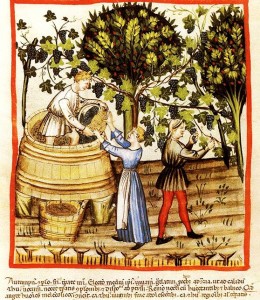The Smithsonian Libraries has published a new Dibner Library Lecture manuscript, The Philosophical Breakfast Club and the Invention of the Scientist, by author Laura J. Snyder, associate professor of philosophy at St. John’s University in New York City. Begun in 1992, the Dibner Library Lectures feature a distinguished scholar who has made significant contributions to his or her field of study. Since 2000, the Dibner Library Lecture has become available in published form. The lecture series and its publication are made possible by the support of the Dibner family.
Category: Special Collections
Pamela O. Long, an independent historian of late medieval and Renaissance history and the history of science and technology, was recently awarded the prestigious MacArthur “genius grant.” The MacArthur Fellowship is an annual award to “talented individuals who have shown extraordinary originality and dedication in their creative pursuits and a marked capacity for self-direction.” Long performed research as a Dibner Library Resident Scholar from February-April 1993. Her research topic was Openness, Secrecy, Authorship, Intellectual Property, and Studies in the Technical, Practical, and Military Traditions of Pre-modern Europe, which led to the published Power, Patronage, and the Authorship of Ars: From Mechanical Know-how to Mechanical Knowledge in the Last Scribal Age (March 1997).
The Movable Book Society 10th Biennial Conference. Philadelphia, Sept 18-20, 2014

This was my very first pop-up book conference and I came away absolutely charged up, inspired and quite proud of our pop-up book collection here at the Cooper-Hewitt Museum Library. I’ve been a member of the Movable Book Society for a number of years, and add the quarterly newsletter, Movable Stationery, to our serial collection, which has been fully digitized and available online. It is indexed on the Movable Book Society website.

Now that the time of harvesting grapes for wine in the Northern Hemisphere is coming to a close, let’s raise an appreciative glass and toast John Adlum, known to a few as the “Father of American Viticulture.” The history of wine making in the United States is involved, to say the least (see Pinney’s magisterial work on the subject*) but it was Adlum who nurtured the first commercially viable vine in this country. And he did so, surprisingly but not incidentally, in the nation’s capital.
This post was written by Grace Costantino, Outreach and Communication Manager for the Biodiversity Heritage Library (BHL). It first appeared on the BHL blog here.
Deep within the rainforest canopy of the Aru Islands, just west of New Guinea, two male Greater Birds-of-Paradise dance among the branches in carefully coordinated steps, their magnificent yellow, white, and maroon plumage undulating gracefully to the rhythm of their own unique song.
This post was written by Lauren Eames. Lauren was an intern with the Cooper Hewitt, Smithsonian Design Library, Summer 2014. She is working on her B.A. in Religious Studies at the University of Chicago.
NEW YORK, 1982 – “Recent gifts to the museum library include a 15th-century illuminated prayer book from Northern Europe, featuring five full-page illuminations, historiated and floriated initials, and elaborate border fantasies; it is the gift of Joseph Farber in memory of his wife Caroline.” (Cooper Hewitt Newsletter, Vol. 5 no. 2)
This cigarette card collector’s book was produced and compiled in Germany in the late 1930’s as a commemoration of World War I, providing a visual record of scenes both on the front and at home. The war theme was popular in the 1930s and was later used for propaganda purposes during the growth of Nazism.
